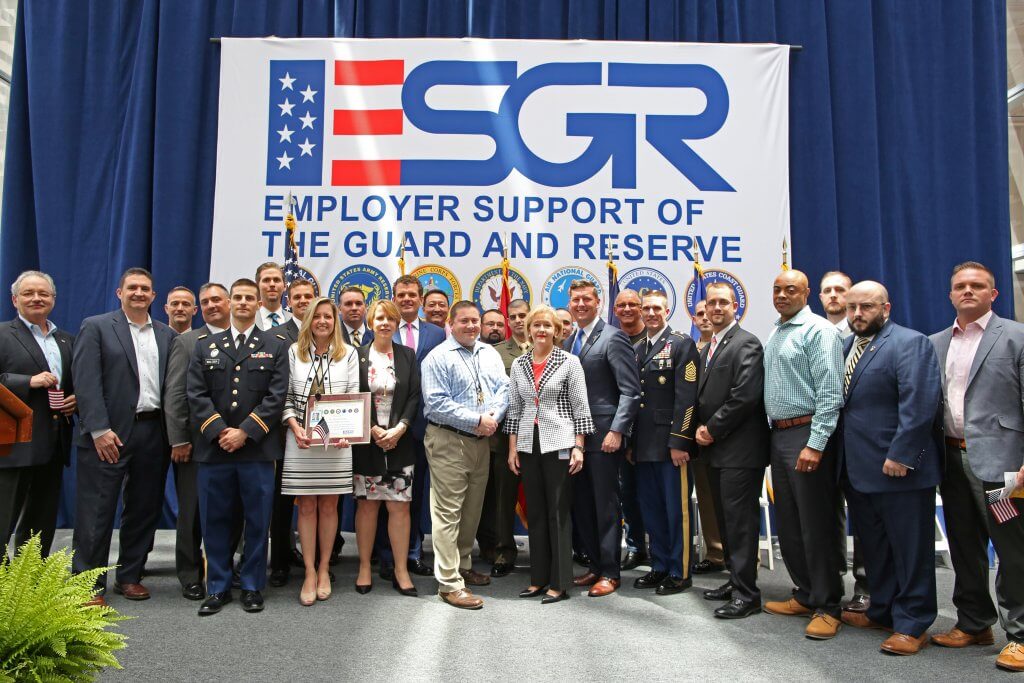Guardsmen and reservists often hold multiple career positions while fulfilling their service in the military. The Department of Defense created Employer Support of the Guard and Reserve (ESGR) in 1972 to ensure seamless relationships can exist between military members and their civilian employers.
“In 50 years of outreach, we’ve presented a voice of the service members to employers in a way that they haven’t seen them before,” said Ronald Bogle, ESGR national chair since 2019. “ESGR has helped to improve the military-civilian divide in multiple ways – not just in hiring practices.”
Retired Brig. Gen. Carol Eggert, also senior vice president of military and veteran affairs at Comcast NBCUniversal, said she believes ESGR helps ease some of the friction between civilian employers, guardsmen and reservists.
As the leader of a team that includes 12 currently drilling Guard and reserve members, she knows what it’s like to work around an employee’s last-minute deployment. And with more than 30 years on active duty and in the Guard and reserve, she also knows what it’s like for the service member to be spinning up for deployment while worrying about their civilian job.
ESGR addresses military-civilian divide
The division between service members and employers isn’t malicious, Eggert said, but often based on misunderstanding.
Over the past two years, guardsmen and reservists have been busy with orders related the COVID-19 pandemic and general staffing shortages, meaning they’ve had to leave their civilian jobs. Employers might not understand what responsibilities they have to their employees in this situation, which is where ESGR comes in.
RELATED: Law enforcement, health care employers supported guardsmen in 2021
ESGR also helps mediate and resolve issues between employers and service members – answering questions service members have about USERRA, for example. Because ESGR has this role, some employers might be hesitant to reach out to them first, Eggert explained. But ESGR offers resources both for employers and service members.
Building stronger relationships
One of ESGR’s programs, called Bosslift, allows civilian employers to visit a military installation and learn what their military-affiliated employees experience. Eggert said it is one of the coolest things she’s seen.
“They call them lifts because many times it’s a helicopter flight, or you get on a C-130 or something,” she said. “But it’s also just getting out to a training location and [being able to] see the incredible level of skill and responsibility, accountability, our service members possess.”
ESGR also builds relationships with employers through their awards program, which consists of a series of DOD awards. There are seven awards, with the highest being the Secretary of Defense Employer Support Freedom Award, which will be awarded this summer.

